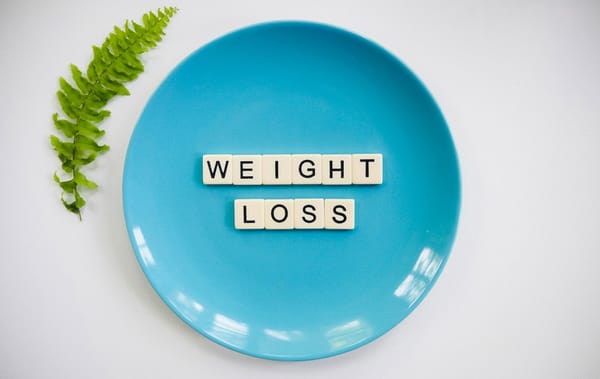Why Meal Timing Might Matter More Than You Think for TDEE Optimization

You've likely heard the phrase, "It's not just what you eat, but when you eat." In fact, for that reason, when it comes to optimizing Total Daily Energy Expenditure (TDEE), this has more importance than most people realize.
TDEE is the total number of calories your body burns in a day, factoring in everything from basic physiological functions (i.e., Basal Metabolic Rate, BMR) to physical activity, including even the act of digesting food. So when it comes to TDEE, most discussions revolve around how to alter calorie intake and exercise. However, recent studies and increased anecdotal evidence suggest that meal timing also plays a role, when you eat your meals, on energy expenditure, weight regulation, and overall metabolic health.
How, why, and when to time your meals
Explaining TDEE and Its Values First
In order to grasp just how meal timing fits into TDEE, one first has to break it down into parts:
- Basal Metabolic Rate: This is the energy your body requires when at rest in order to support essential functions, such as breathing, heartbeat, etc.
- Thermic Effect of Food consumption: This is how many calories are burned digesting and absorbing nutrients.
- Non-Exercise Activity Thermogenesis (NEAT): Any energy expenditure not related to sleeping, eating, or intentional physical activities.
- Exercise Activity Thermogenesis (EAT): The calories burned while engaging in any physical activity on purpose.
One can now show how important meal timing is to TEF, indirectly also influencing NEAT and EAT, and affecting your circadian rhythms, which might slowly shift your BMR.
The Science behind Meal Timing and Metabolism
This 24-hour internal clock is said to operate within your system to offer synchronization in sleep, hormone release, digestion, and metabolism. In addition, it works continuously throughout the day and is called the circadian rhythm, working closely with meal timing.
Whatever way we consider it: The field of chrononutrition aims to study meal timing in respect to the body's internal biological clock in the case of every eating cycle and to show its importance toward enhancing metabolic function and energy processing in the human body.
For example:
- Insulin sensitivity is better in the morning, leading to a better use of glucose by the body during the first part of the day.
- The thermic effect of food is higher in the morning compared to evening, meaning more calories will be burned in digesting the same meal during morning hours compared to evening.
This suggests that if all are brought together, energy use and TDEE might be optimized by taking food earlier in the day.
What Effect Does Early Time-Restricted Feeding (ETRF) Have
Early time-restricted feeding (ETRF) is one of those diets currently getting plenty of attention. It allocates a defined time frame for consuming all meals from 8 AM to 4 PM. Some benefits associated with this eating pattern are as follows:
- Improved insulin sensitivity
- Reduced cravings during nighttime hours
- Increased fat-burning levels
- Lower signs of inflammation
- Higher energy expenditure
Everyone has been doing these small studies in Cell Metabolism. It hasn't quite been proven yet, but it shows that hormones and metabolism relate to TDEE.
Read: TDEE and Blood Sugar Control: Balancing Your Calories for Stable Energy Levels
Meal Timing in Relation to Thermic Effect of Food
Earlier, we noted the importance of TEF to TDEE. It accounts for roughly about 10% of total caloric expenditure, and meal timing can increase or decrease that number.
Evidence suggests that those who eat their biggest meal early in the day show a much greater TEF response as compared to those who eat their biggest meal later.
Why this is important is because a higher TEF means more energy burned through digestion, adding up to a higher total daily energy expenditure. Large-calorie meals taken late at night, then could mean more calories stored as fat because of lower thermogenesis and lower insulin sensitivity.
Meal Frequency vs Meal Timing
The confusion is between two terms: meal frequency (the number of times you eat) and meal timing (the times you eat). They can sometimes overlap, but at the end of the day, they are not the same.
Meal frequency relates to whether they eat three big meals a day, or six small ones, or go for intermittent fasting. On the flip side, it refers to those times during the day and whether they correspond with the best functioning of the body.
Also read: TDEE and Fasting: Can You Safely Reduce Your Caloric Intake for Health Benefits?
Interestingly, it should be noted that having frequent meals does not necessarily lead to increased TDEE. In studies, it has been shown that splitting the same number of calories across six meals rather than three does not make a meaningful difference in terms of total energy expenditure. But, again, you might increase your TDEE if the meals are earlier in the day, even if there are fewer.
Now, whether or not skipping breakfast has an impact on TDEE is still a question open for debate. Some argue that skipping breakfast leads to a reduction in daily caloric intake because it helps in losing weight, while others attest to its role in starting the metabolism.
For example, from the TDEE point of view, by avoiding breakfast, one can limit the TEF time in the case of later-in-day eating, where most energy is taken in. An early hour promotes the body's processing and burning of energy.
Bonus Whole Foods for Health
People participating in whole-food diets were much more easily able to avoid long, dense, low-nutrient calories, which helps more than ever with fighting sugar-related crashes.
Conclusion
If anything could possibly be called a strong tool, meal timing could very well be called this, powerful to use but sadly overlooked in a world focused on counting calories and macros. If you are already paying attention to what you eat, you can also get better results by considering the timing.
If these meals are then aligned with the natural rhythms of the body, they could lead to reduced fat storage, increase the thermic effect of foods, or even raise TDEE without requiring any additional workouts or cutting even more calories. In other words, timing might just be everything.



